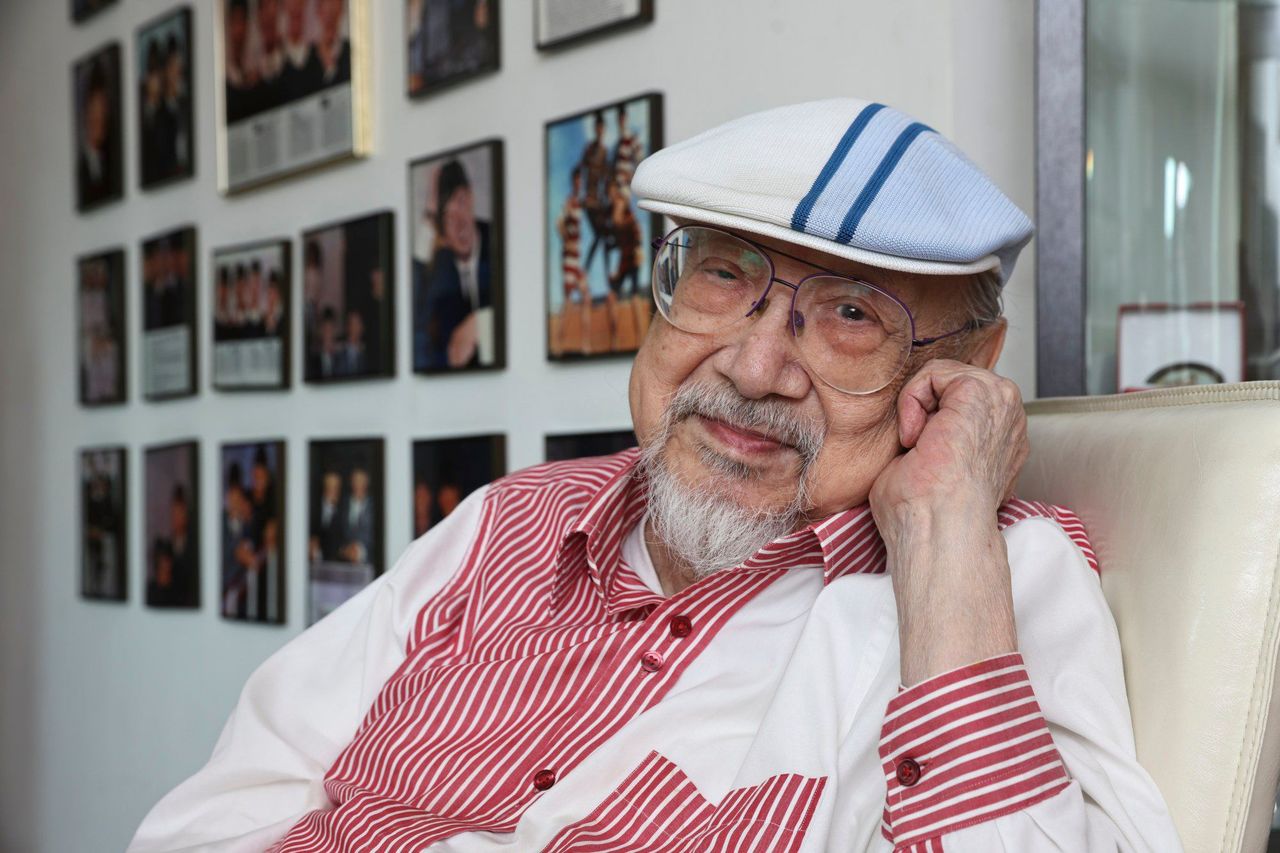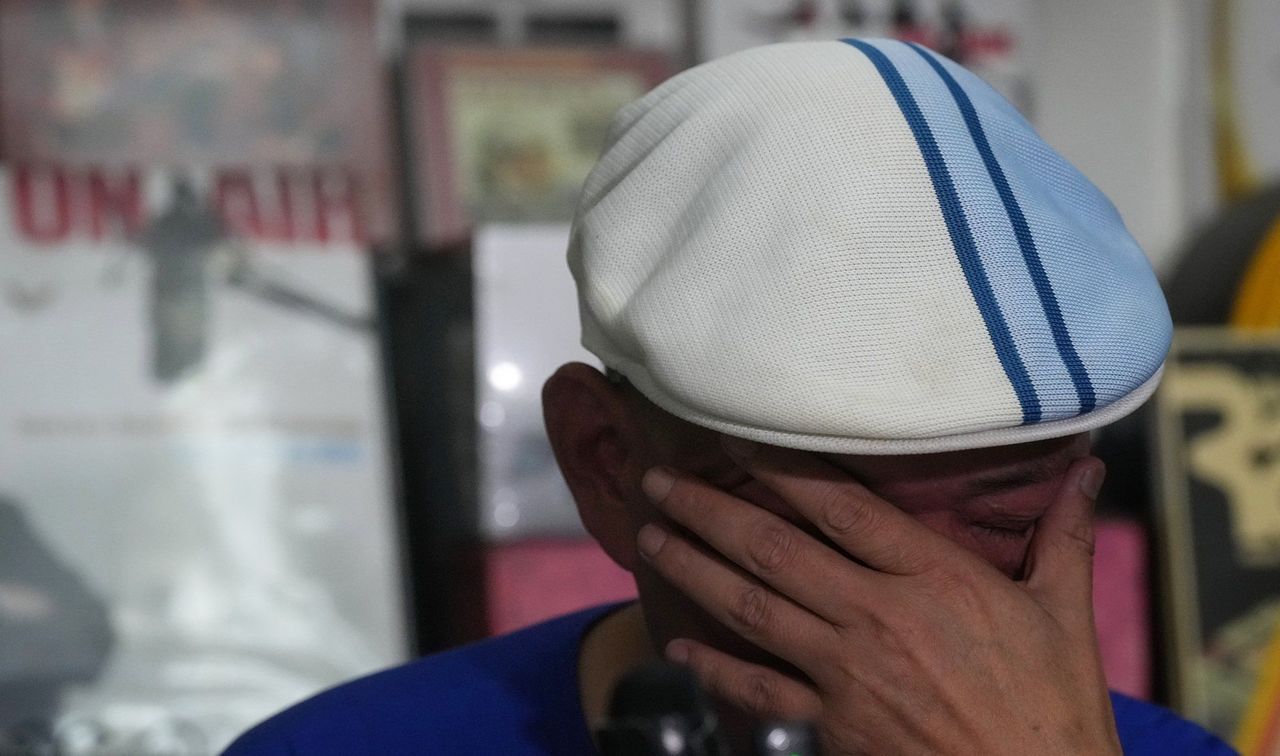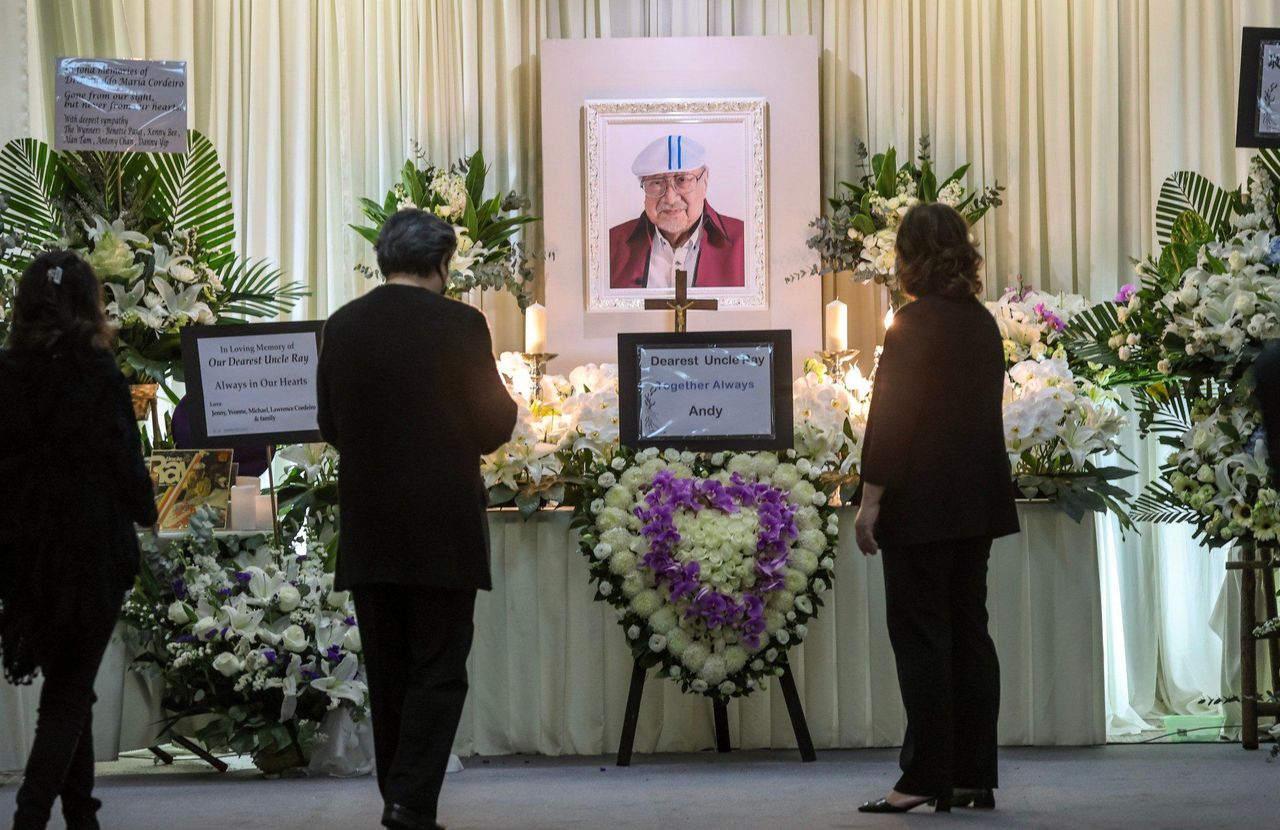Hong Kong News

Godson of ‘Uncle Ray’ urges Hong Kong public hospitals: improve patient handling
Late veteran DJ “Uncle Ray” Cordeiro’s godson has urged Hong Kong’s public hospitals to review patient handling procedures after complaining about the treatment of the 98-year-old radio legend at one of the medical institutions.
Andy Chow Shun-ho, who was also Cordeiro’s former assistant, made the appeal on Monday after Queen Elizabeth Hospital apologised last Friday for poor communication with the family, but did not discuss its treatment decisions in the statement.
Chow earlier filed a complaint to the Medical Council after he was dissatisfied with the hospital’s response when he raised concerns over the treatment.
The late DJ’s family discovered he had severe oedema and bedsores when they transferred him to the private Chinese University of Hong Kong Medical Centre in the New Territories last November. Cordeiro died at the facility on January 13.
 Late veteran DJ “Uncle Ray” Cordeiro.
Late veteran DJ “Uncle Ray” Cordeiro.
Chow raised concerns about the decision of doctors at Queen Elizabeth Hospital in Yau Ma Tei to use a catheter, saying staff had inserted the tube against Cordeiro’s wishes on November 23 last year.
He demanded the Hospital Authority review its procedures and guidelines on catheter insertion and bedsore prevention.
“Through uncle’s misfortune, we hope that some unprofessional medical staff will understand and alert themselves about the irreversible damage their carelessness can cause elderly and terminally ill patients,” Chow said.
He warned that he would pursue legal action if the authority and council failed to take follow-up action.
He added that doctors told him in a meeting that nurses had explained the catheter procedure to the veteran DJ and consoled him, before inserting it quickly once he had calmed down.
A spokesman for the hospital said the tube was used for “clinical needs”, as the patient had kidney failure.
 Andy Chow raises concerns over Cordeiro’s hospital treatment.
Andy Chow raises concerns over Cordeiro’s hospital treatment.
“The relevant procedure helps monitor the patient’s urine and urination situation, as well as urine collection for a bacteria test, in order to let the doctor further understand their condition to provide suitable treatment,” he said.
In addition to urging authorities to improve care for terminally ill elderly patients, Chow said he was also unhappy about the hospital’s delay in transferring Cordeiro to another ward after a patient next to him was infected with Covid-19.
The hospital said in its statement on Friday that an “immediate” arrangement was made, but according to Chow, Cordeiro was still in the same ward around 6pm despite having made the transfer request in the morning.
Chow also insisted that he had only developed heart and kidney failure after receiving treatment at the hospital.
The hospital did not respond to these two disputes.
Geriatric specialist Paul Shea Tat-ming said there was usually a delay when doctors communicated catheter insertion decisions with families, and that bedsores were extremely common in geriatric and medical wards in public hospitals, where staff were often overwhelmed.
 A memorial service for “Uncle Ray” Cordeiro in January.
A memorial service for “Uncle Ray” Cordeiro in January.
He added hospital staff would order patients at high risk of developing bedsores to be turned around every four hours, but this could be delayed in wards.
Cordeiro, who was a constant on Hong Kong’s airwaves for more than 70 years, was awarded “The World’s Most Durable DJ” accolade by Guinness World Records.











